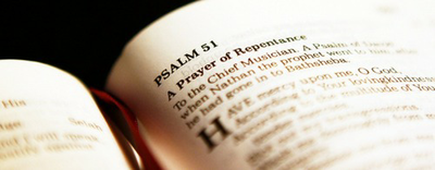
Poetry of the Penitent Heart, by Katherine Cooper, Christianity Today
"History left just enough details about Anne to tantalize us. She was a brave, educated woman who used her skills to create works of influence in the midst of tragedy.
"Anne Vaughan Lock was born to what we might consider an upper middle class family. At first glance, they seem the 16th-century London version of "2.5 kids and a picket fence." A merchant by trade, Stephen Vaughan, Lock's father, recognized the importance of ideas and the power of words. He was interested in the new Lutheran theologies flowing across Europe and soon began lining his shelves with illegal pamphlets and copies of the Scripture smuggled into England from the Continent. In a radical move for the time, Vaughan ensured that both his son and daughters had access to education through a private tutor..."
"...In 1555, Lock's hometown of London was not a safe place for those who refused to conform to the reestablishment of Catholicism. Those refusing to obey Mary I's laws concerning religious expression faced fines, punishments, and even execution by burning. At 23, Lock fled London with two small children, for safety in John Calvin's Genevan community."
~~~~~
"Anne Locke published the first sonnet sequence in English, A Meditation of a Penitent Sinner; it comprises 26 sonnets based on Psalm 51. It was added to a 1560 volume of translations of Calvin's sermons on Hezekiah that she dedicated to the Duchess of Suffolk.[5] Anne's sonnets show that she was influenced by both Thomas Wyatt and Henry Howard, Earl of Surrey.[6]
[5] It appears in Sermons of John Calvin, vpon the songe that Ezechias made after he had been sicke (1560).
[6] Michael Spiller, Early Modern Sonnetteers: From Wyatt to Milton (2001), pp. 24-27.
Anne Lock at Wikipedia

 RSS Feed
RSS Feed